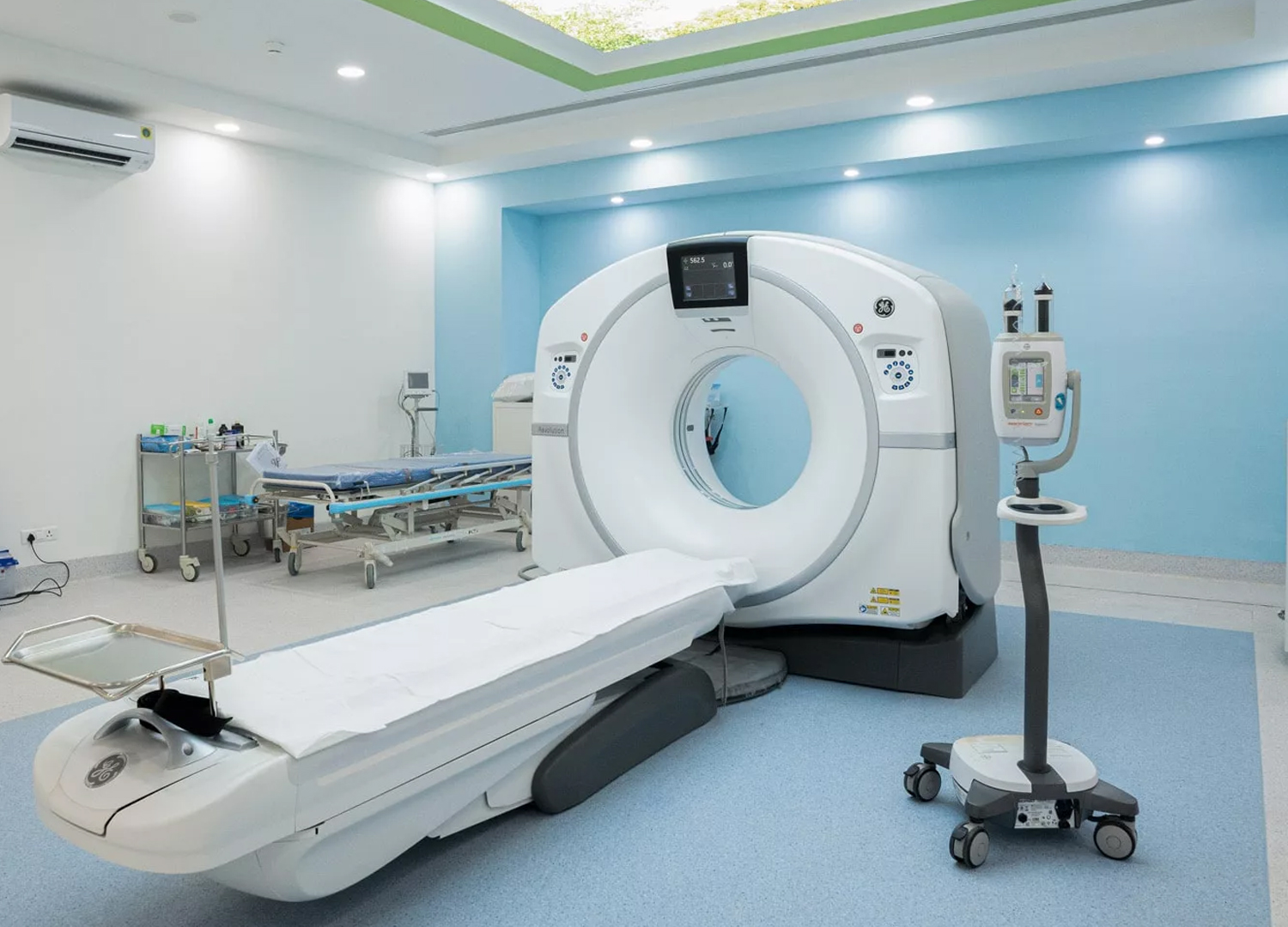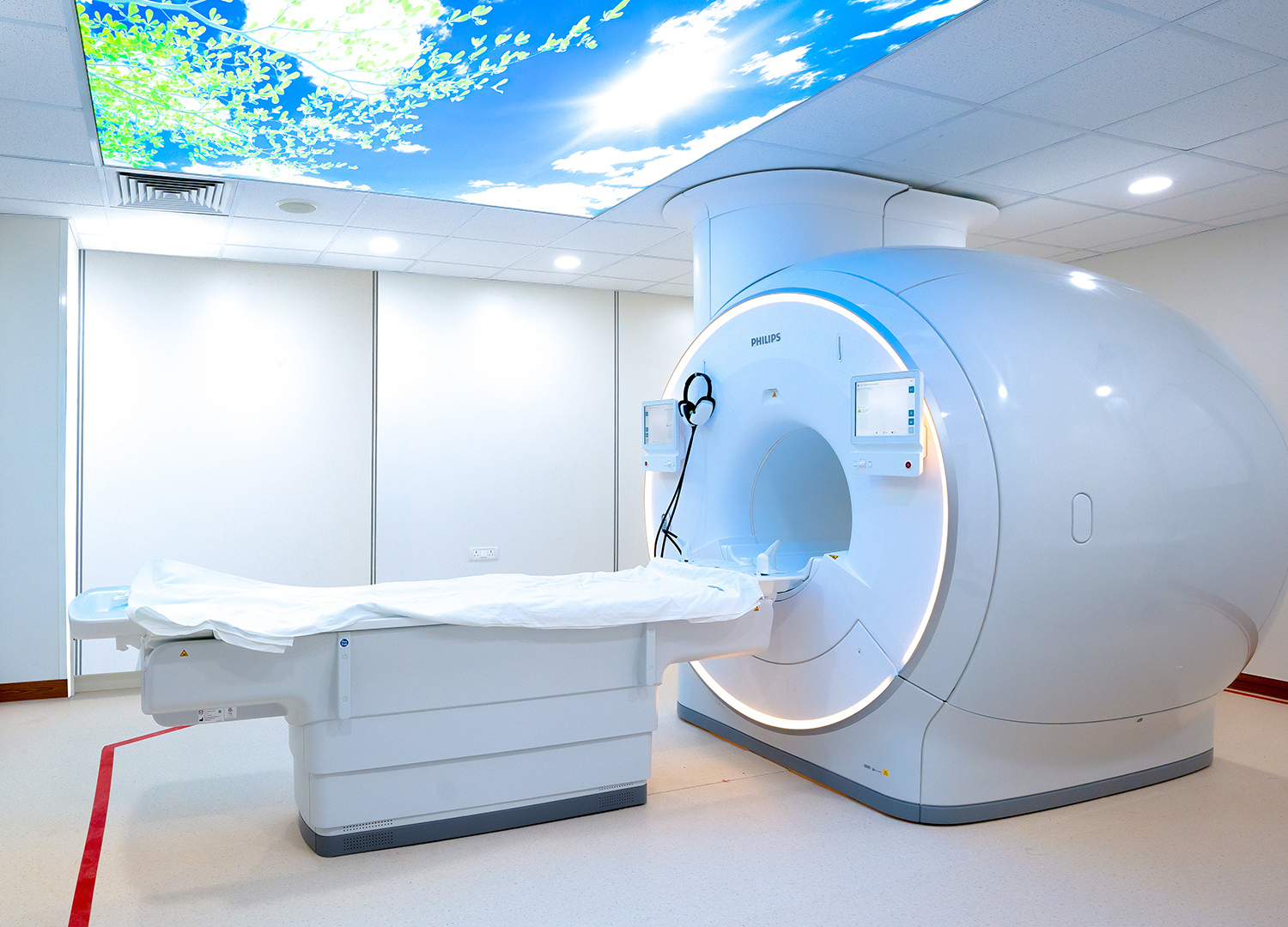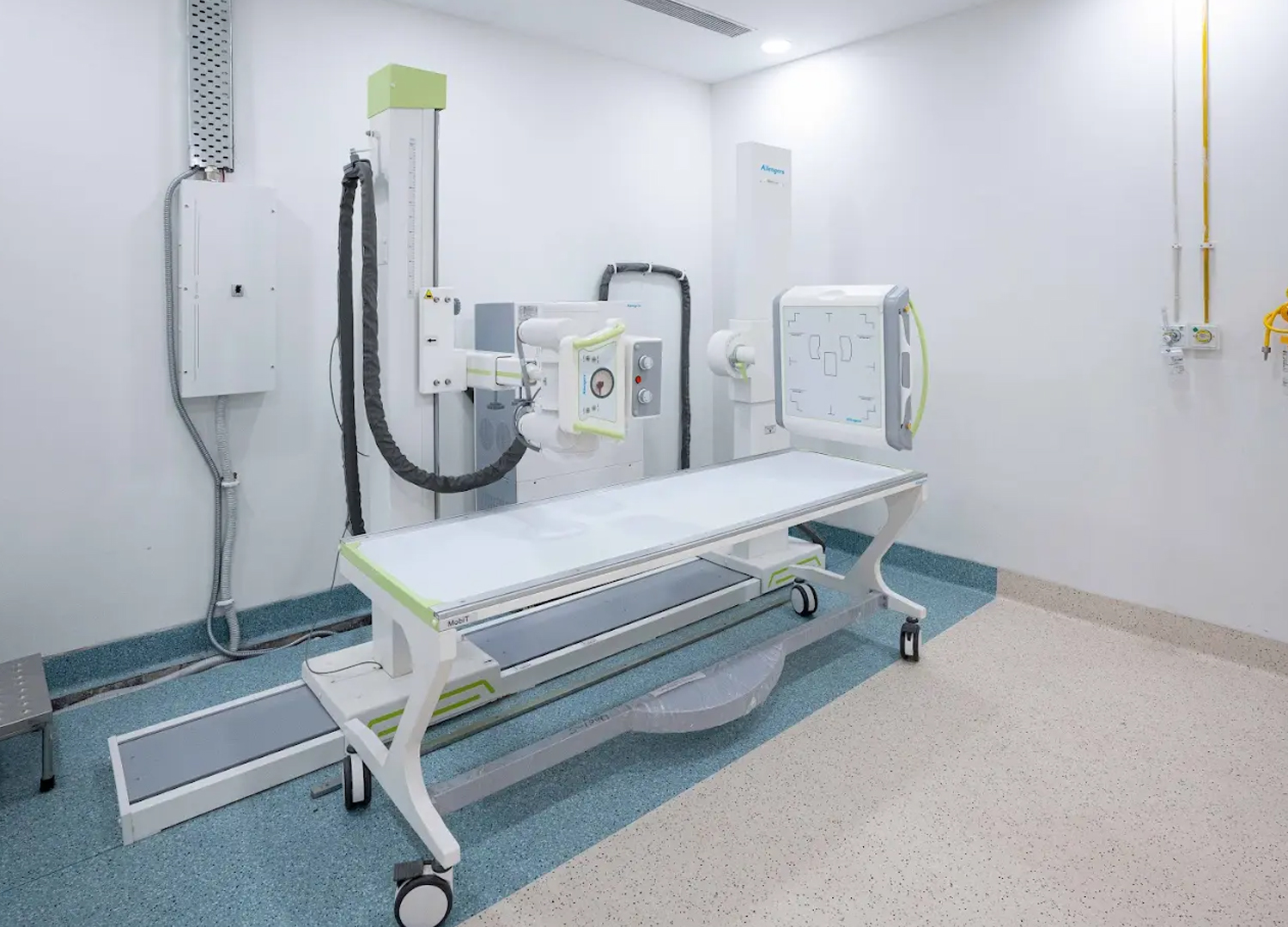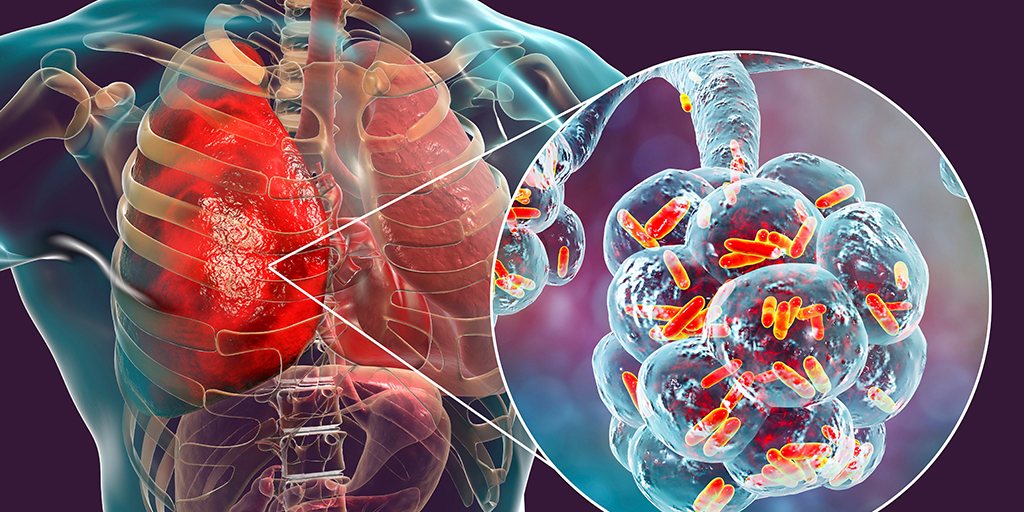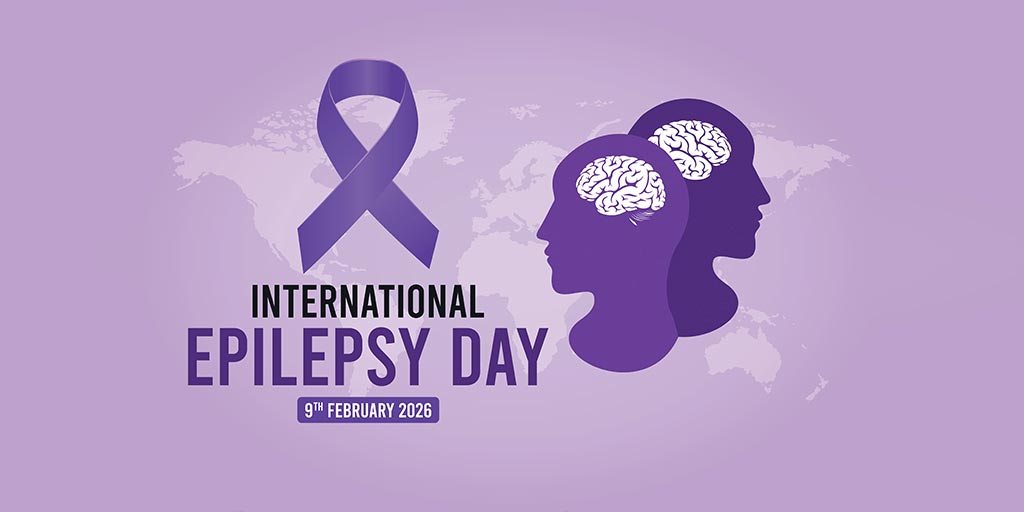Interventional Radiology (IR) at Graphic Era Hospital provides minimally invasive, image-guided procedures to diagnose and treat a wide range of medical conditions without the need for open surgery. Using advanced imaging technologies such as Ultrasound (USG), CT, MRI, and Fluoroscopy, our specialists perform highly precise, targeted treatments with reduced recovery time, lower risks, and minimal discomfort. Our team of interventional radiologists employs cutting-edge techniques for vascular interventions, oncological treatments, biopsies and embolization procedures. As a leading interventional radiology hospital in Dehradun, Graphic Era Hospital ensures comprehensive, patient-focused care through the latest technology, expert specialists, and innovative medical solutions.
Conditions That May Require Interventional Radiology
Interventional Radiology (IR) plays a vital role in diagnosing and treating a variety of medical conditions using minimally invasive techniques. Patients who require precise, image-guided procedures for vascular disorders, tumour treatments, organ biopsies, and pain management may benefit from IR. If traditional surgery is not an option due to health concerns, IR serves as an effective alternative with quicker recovery and fewer risks. Common conditions treated with interventional radiology:
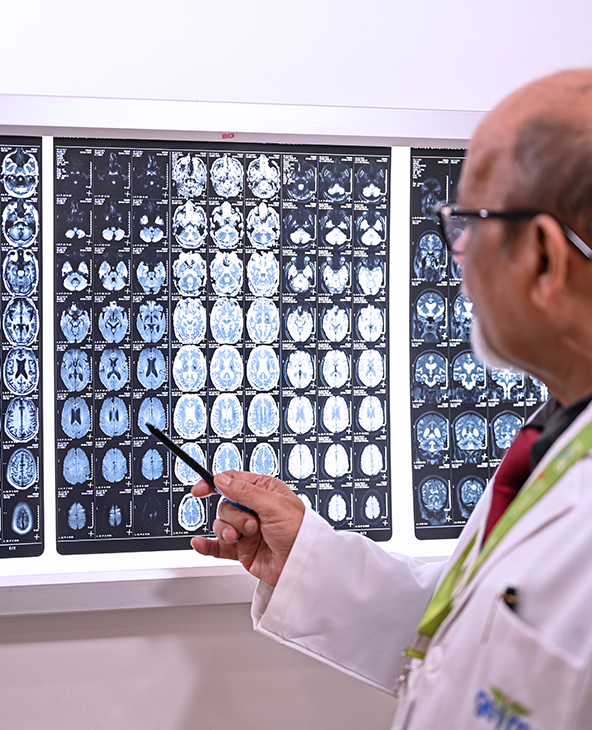
- Vascular Disorders: Peripheral artery disease, deep vein thrombosis (DVT), varicose veins, and arterial blockages. Patients with aneurysms or vascular malformations needing embolization.
- Cancer and Tumour Management: Liver, kidney, lung, bone and uterine tumours requiring FNAC, biopsy, embolization or ablation.
- Biliary and Kidney Conditions: Biliary strictures, gallbladder drainage, and urinary blockages requiring percutaneous nephrostomy.
- Chronic Pain and Joint Disorders: Joint pain, osteoarthritis, and spine-related conditions needing fluoroscopy-guided injections.
- Abnormal Bleeding: Uncontrolled uterine bleeding, tumor bleeding, haemoptysis and gastrointestinal bleeding requiring embolization.
- Dialysis Access Issues: Narrowed or blocked dialysis access requiring fistuloplasty or venoplasty. Tunneled and non-tunneled catheter insertion.
Things to Know Before Undergoing an Interventional Radiology Procedure:
Before undergoing an Interventional Radiology (IR) procedure, patients should be aware of the preparation steps, benefits, and recovery expectations. These minimally invasive, image-guided treatments are performed using advanced imaging techniques such as ultrasound, CT, MRI, and fluoroscopy, ensuring precision and reduced recovery time. Key considerations before the procedure:
- Medical Evaluation: Patients may require a pre-procedure assessment, including blood tests and imaging scans.
- Fasting Requirements: Some procedures may require fasting for a few hours before treatment.
- Medication Adjustments: Certain medications, including blood thinners, may need to be adjusted before the procedure.
- Anaesthesia & Sedation: Most IR procedures are performed under local anaesthesia or mild sedation, ensuring minimal discomfort.
- Procedure Duration: Depending on the complexity, procedures can take 30 minutes to a few hours.
- Same-Day Discharge: Many IR procedures allow for same-day discharge, though some may require short hospital observation.
- Post-Procedure Care: Patients should follow recovery instructions, including avoiding heavy activities for a few days.
- Lower Risks: Compared to traditional surgery, IR procedures have lower infection risks, minimal scarring, and faster recovery.
Interventional Radiology Treatments Available at Graphic Era Hospital
At Graphic Era Hospital, our Interventional Radiology (IR) department offers a wide range of minimally invasive treatments using advanced imaging techniques. These procedures are designed to diagnose, treat, and manage complex medical conditions without the need for open surgery. Key interventional radiology treatments:
USG & CT-Guided Procedures
- FNAC & Biopsies: Image-guided fine-needle aspiration and biopsies for Liver, Lung, kidney, vertebrae, prostate and breast tissue.
- Tumour Ablation (RFA): Radiofrequency/ Microwave ablation to destroy cancerous tumours. Thyroid nodule ablation.
- Drainage of thoracic or abdominal collections.
Fluoroscopy-Guided Procedures
- Joint Injections: Pain relief for osteoarthritis and joint inflammation.
- Biliary Interventions: PTBD, Stent placement for bile duct obstructions.
- Percutaneous Nephrostomy: Urinary drainage for urinary blockages.
- Catheter Insertions: Placement of Permacath/HD catheter and PICC line insertions for long-term IV access.
DSA (Digital Subtraction Angiography) Guided Procedures
- Embolization Procedures: Bronchial artery embolisation, Tumour embolization, vascular malformation embolization, and uterine artery embolization.
- Aneurysm & Vascular Stenting: Treatment for visceral and peripheral aneurysms.
- DVT Thrombectomy & IVC Filter Placement: Removal of blood clots and prevention of embolism.
- Dialysis-Related Interventions: Fistulogram, fistuloplasty, venoplasty, and stenting for dialysis patients.
- Peripheral Angioplasty & Stenting: Opening blocked arteries to restore blood flow.
- Transarterial Chemoembolization (TACE): Targeted chemotherapy delivery for cancer patients.
Doctors Available
Why Choose Graphic Era Hospital for Interventional Radiology?
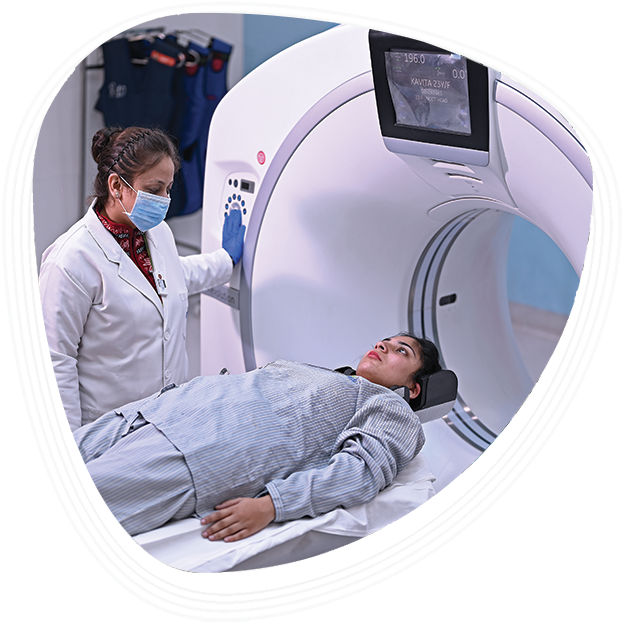
Interventional Radiology Services Available at Graphic Era Hospital
At Graphic Era Hospital, we offer a wide range of interventional radiology services that combine advanced imaging technology with minimally invasive techniques to diagnose and treat various medical conditions effectively.
USG & CT-Guided Procedures
Our ultrasound and CT-guided procedures provide precise, minimally invasive diagnostic and therapeutic solutions.
- FNAC & Biopsies: Image-guided fine-needle aspiration and core biopsies for lung, liver, bone, prostate and breast tissue.
- Tumour Ablation (RFA): Radiofrequency ablation to destroy cancerous tumours with minimal invasion. Thyroid ablation.
Fluoroscopy-Guided Procedures
Fluoroscopy allows for real-time imaging, ensuring accuracy in targeted procedures.
- Joint Injections: Pain relief for osteoarthritis and joint-related disorders.
- Biliary Interventions: Stenting and drainage procedures for bile duct obstructions.
- Percutaneous Nephrostomy: Urinary drainage procedure to relieve urinary blockages.
DSA (Digital Subtraction Angiography) Guided Procedures
DSA is used for vascular interventions, providing high-definition imaging of blood vessels.
- Embolization Procedures: Uterine artery embolization, Bronchial artery embolisation, tumour embolization, and vascular malformation embolization.
- Aneurysm & Vascular Stenting: Minimally invasive treatment for aneurysms and vascular blockages.
- DVT Thrombectomy & IVC Filter Placement: Removal of blood clots and prevention of embolism.
Top Procedures
- USG & CT-Guided FNAC & Biopsies
- Tumour Ablation ( RFA/MWA)
- Fluoroscopy-Guided Joint Injections
- Biliary Stenting and Drainage Procedures
- Percutaneous Nephrostomy
- Permacath/PICC line insertion
- Fistulography and Fistuloplasty
- Bronchial artery embolization
- Uterine Artery Embolization
- Tumour Embolization and Vascular Malformation Embolization
- Aneurysm Stenting and Coiling
- DVT Thrombectomy & IVC Filter Placement
- Peripheral Angioplasty & Stenting
- Transarterial Chemoembolization (TACE)
Interventional Radiology Conditions Treated at Graphic Era Hospital
Advanced Diagnostics & Technology
- Offers high-resolution imaging for detailed blood vessel analysis, aiding in accurate diagnosis and treatment planning.
- Delivers advanced imaging with high resolution for clear, detailed views of soft tissues, ensuring precise diagnostics.
- Provides high-quality, detailed radiographic images for accurate diagnosis with minimal exposure to radiation.
Other Specialities
Patient Stories
Blog
Frequently Asked Questions (FAQs)
How does Interventional Radiology differ from traditional surgery?
Interventional Radiology (IR) uses minimally invasive, image-guided techniques to diagnose and treat conditions without large incisions. Unlike traditional surgery, IR procedures result in less pain, quicker recovery, and lower risk of complications.
Are Interventional Radiology procedures painful?
Most IR procedures are performed under local anaesthesia or mild sedation, ensuring minimal discomfort. Patients may experience mild soreness post-procedure, but recovery is generally quick.
How long does it take to recover after an Interventional Radiology procedure?
Recovery time varies depending on the procedure, but most patients resume daily activities within 24–48 hours. Some treatments may require a short hospital stay, while others allow for same-day discharge.
What are the risks associated with Interventional Radiology?
Interventional Radiology procedures are generally safe with lower risks than traditional surgery. Potential risks include minor bleeding, infection, or temporary discomfort, but complications are rare when performed by experienced specialists.
Do I need a referral to undergo an Interventional Radiology procedure?
While some procedures require a referral from a primary physician or specialist, others can be scheduled directly based on medical evaluation at Graphic Era Hospital. Our team will guide patients through the consultation and procedure scheduling process.

